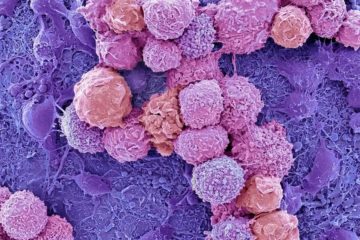Michael Le Page in New Scientist:
 Balls of human brain cells grown in a dish, known as organoids, have been linked to computers and used to solve mathematical equations. The work is an early step towards using living brain tissue as a form of artificial intelligence, but this goal may raise ethical questions in the future, researchers say.
Balls of human brain cells grown in a dish, known as organoids, have been linked to computers and used to solve mathematical equations. The work is an early step towards using living brain tissue as a form of artificial intelligence, but this goal may raise ethical questions in the future, researchers say.
In a paper posted online before peer review, Feng Guo at Indiana University Bloomington and his colleagues say they have created “living AI hardware that harnesses the computation power of 3D biological neural networks in a brain organoid”. The paper states that “Brainoware”, as the researchers call it, can learn from training data and that experiments show it could have real-world applications.
Computer-based AI is getting very good at certain tasks, but this progress is being achieved by creating ever bigger and more energy-intensive AI systems, and training them on ever bigger data sets. For instance, the AlphaGo system that first beat humans at the game Go was trained on 160,000 games, more than any person could play in a lifetime.
Human brains use only around 20 watts of power, and people need to play far fewer games to become good. So some researchers think the way forward is biocomputing – using living brain cells as AIs.
More here.
